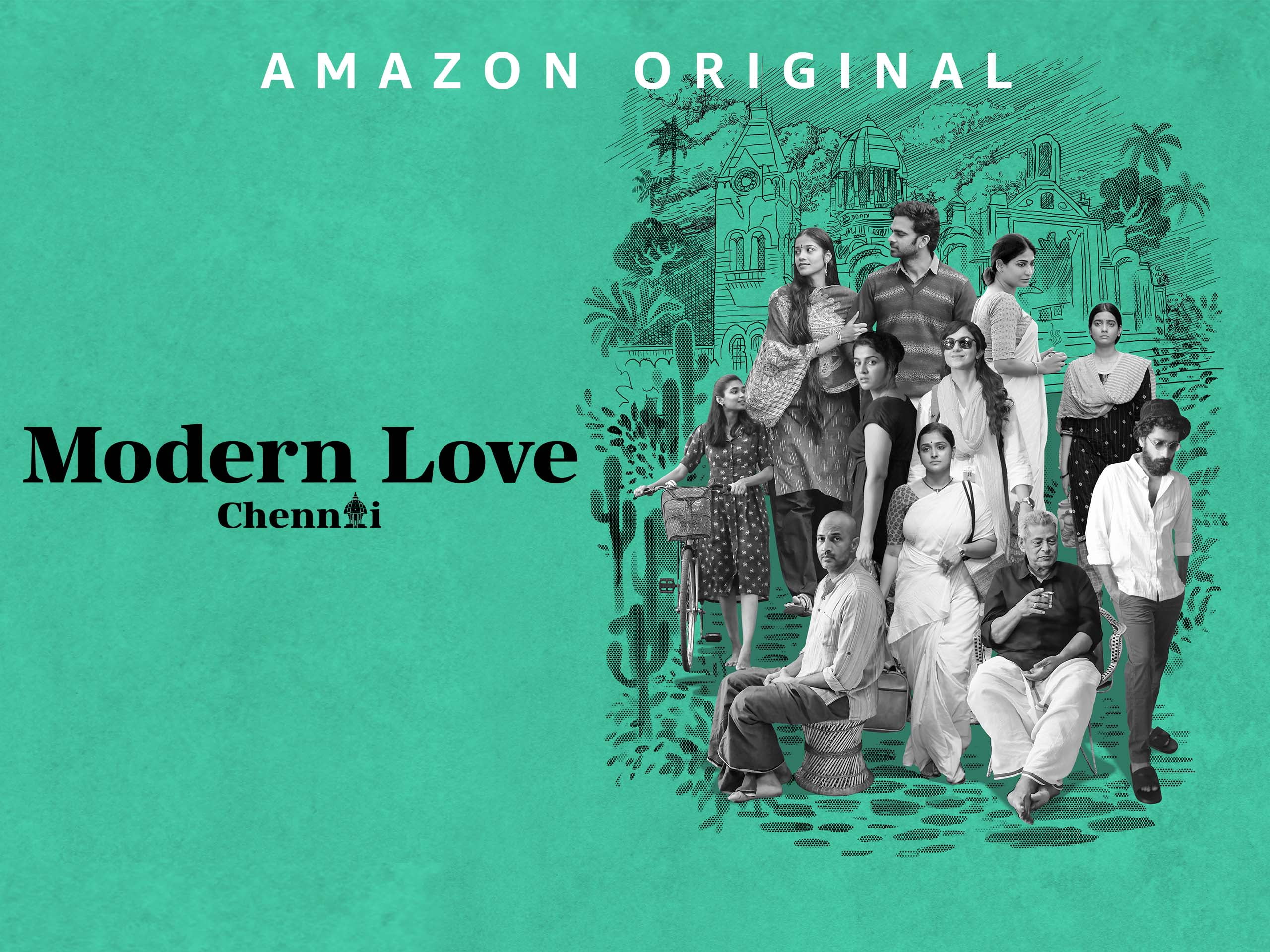Modern Love Chennai is the third iteration of the Modern Love series made in India. The anthology brought together by Thiagarajan Kumararaja is inspired by the New York Times column. The six-episode collection of layered sagas of love is currently streaming on Amazon Prime Video.
The series sings love, romance, and warmth of emotions. The protagonists are strong women who know what they want and are not ashamed to pursue it. Some episodes serve a well-crafted delicacy of balanced flavours of attraction, heartbreak, pain, and happiness while others leave an aftertaste of brilliance that is overwhelming and almost too modern.
The missing city
The episodes flourish on the grounds of Chennai but are not too attached to the city. The city provides a pretty canvas but could easily be picked and planted in any other city in the world. Modernism is also accepting that human behaviour is common worldwide and that is captured beautifully in this series.
Love cannot be bound by a city but it most surely celebrates the land that propagates it. The stories bring the aroma of Chennai and almost make the viewers nostalgic. A sense of longing for the culture that one hasn’t even been brought up in is immediately inculcated through the carefully curated architecture, streets, food, and milieu.
The first episode, Lalagunda Bommaigal, is proud of its street and the culture that allows co-existence but no mixing. From the “Mumbay Chaat” stall to the supremacy of speaking Tamil captures the importance of its location, but the end also frees it from the same. Modern Love Chennai is liberating and intoxicating at the same time, much like the sepia-coloured rain that washes the screens in almost every episode.
The first episode, Lalagunda Bommaigal, is proud of its street and the culture that allows co-existence but no mixing. From the “Mumbay Chaat” stall to the supremacy of speaking Tamil captures the importance of its location, but the end also frees it from the same. Modern Love Chennai is liberating and intoxicating at the same time, much like the sepia-coloured rain that washes the screens in almost every episode.
Everything modern and love
What is modern? And, what is love? And why modern love?
Modernism has always been a site of contest mainly because it was subjective. What constitutes modern and what does not depend on the audience and the consumer’s perspective. In the crudest interpretation, it would mean something that steers away from the traditional perspective. The Amazon Prime series can be called modern, for it does break a few boundaries but it ultimately seeks refuge in the warm cuddle of the 90’s cinematic depiction of romance.
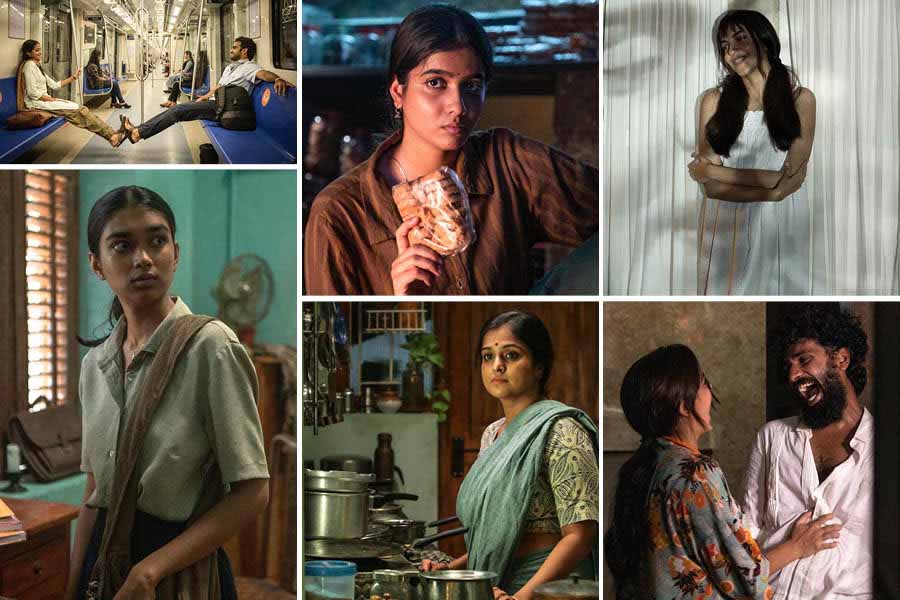
Love is a very broad term, the twenty-first century claims to know about all spectrums of love. The anthology fails to dwell beyond the heteronormative idea of love but fiddles with the idea of pushing the envelope. In the first episode, Shoba (Sri Gouri Priya), a sharp-tongued biscuit maker tries to construct an aura around her that ultimately fails to conceal her desires. She desires love, gets an abortion, falls in love again with a crook who has impregnated another girl and ends up marrying the guy that the patriarchs suggest.
The tale is about a strong woman falling in and out of love and realising that marriage was the best decision for her. She ends up with a crook who had met her in the garb of a guru and later reveals his true self. The truth of love for her emerges from the man who has defrauded many.
Responsibilities, compassion, and romance with a patriarchal twist in Modern Love Chennai
The second episode, Imaigal, is the love story of a college couple who promise to support each other through the most difficult times. Devi (T J Bhanu) is diagnosed with Retinal Degenerative Disease. She explains her medical condition before Nithiyanandham (Ashok Selvan) can decide to fall in love with her. He heroically arrives the next day with her name tattooed on his chest.
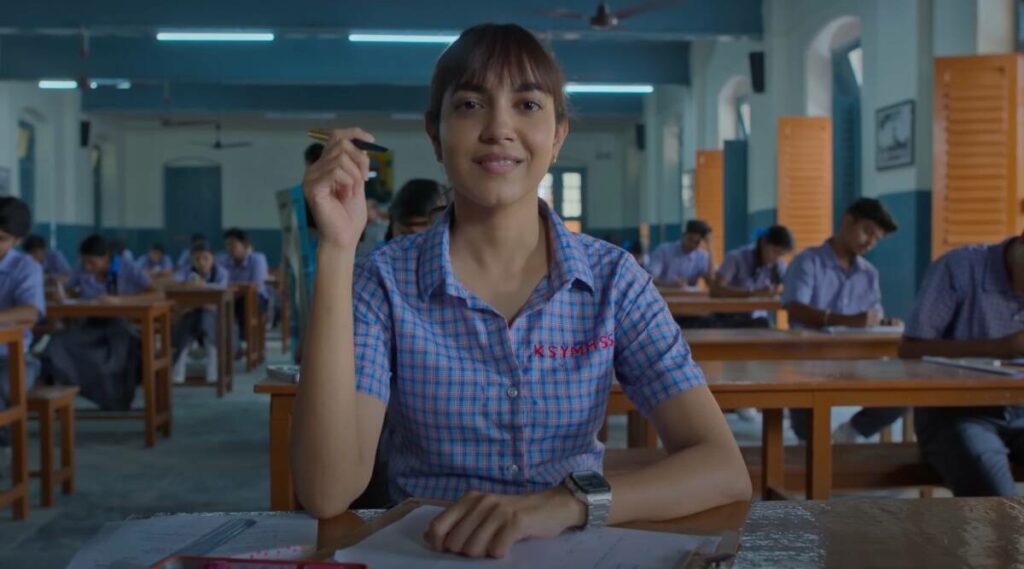
This begins the intense romantic affair of two middle-class youngsters, filled with desires and deluded with love. Life thereafter lets them enjoy the time before the protagonist’s vision worsens. It is only at the actual juncture where she needs his support, that he falters. From helping her with daily household chores to leaving her on the street because she refuses to have another child, Nithya irritates the feminist in me and soothes the romantic by returning with a soft gesture.
He is eager to learn, she is ready to forgive. The final modernity of their understanding happens when he suggests she pursue her childhood dream of becoming a Veena player. It is a story repeated in cinema, one of love, sorrow, and struggle.
Love is a heart-eyed emoji
The third episode is probably the weakest in the anthology. Krishnakumar Ramakumar brings the story of Mallika. A 90’s child brought up with the romantic movie idea of love and marriage. She keeps searching for her true love but fails. She confronts cheating, casteism, dating app stereotypes, and the constant judgment from society but doesn’t tire her search for her soulmate.
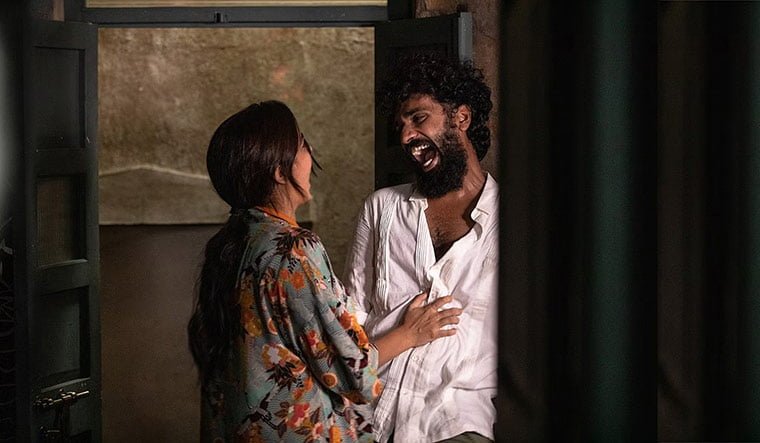
Her breaking point is the wedding of her younger sister, post which she agrees for her marriage to be arranged by her parents. No point in guessing that she finds her soulmate in her husband. An episode that celebrates all stereotypes related to love and glorifies the idea of arranged marriage is probably the closes we get to the modern love for the generation stuck between romantic movies, retro songs, and new-age technology.
Love post-separation as a form of modern love
A very important tenet of love celebrated in the later part of this anthology is accepting and celebrating love after separation. The fourth episode, Margazhi, is an innocent narrative of infatuation, teenage love, and smiles. Two teenagers who struggle to overcome their parent’s divorce find refuge in each other. Through beautiful landscapes and neat writing, Akshay Sundher’s addition to this anthology brings the much-needed layers of love.
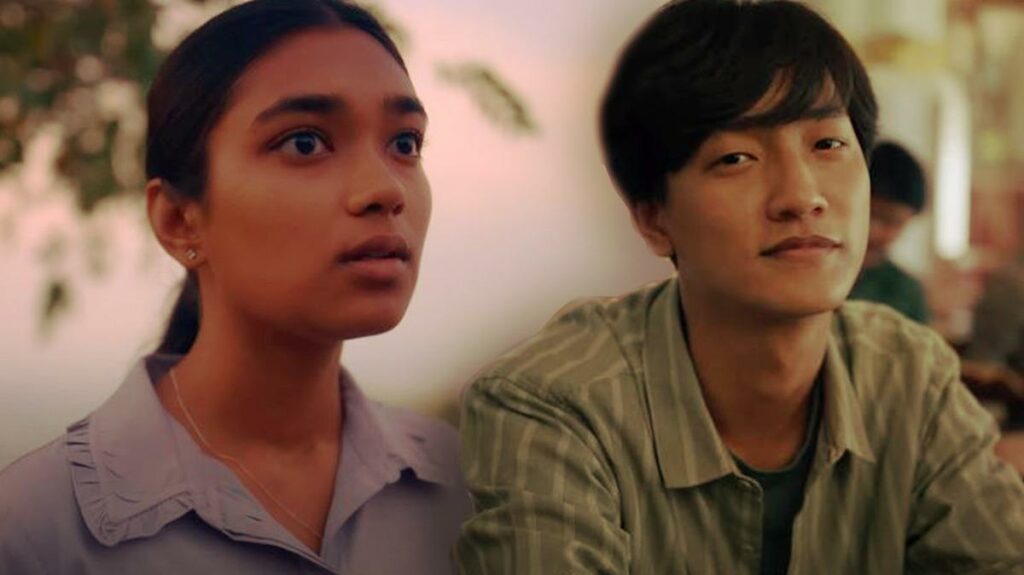
Love is not only about marriage, it is about standing by each other at the most difficult hour. Especially in a society with increasing separations, it talks about the children of broken homes finding refuge in the idea of love. Holding hands and first kisses sew together a beautiful portrayal of first love and first separation.
From strangers to family, from family to acquaintances
The husband falls in love with an independent woman on his way to work and brings her back to his home. He discloses his decision to his family and the lover meets the wife. She sees the home, the family photographs, the children’s drawings, and the upset father-in-law. What happens next?
A beautifully scripted narrative weaves together a complicated topic with the attention and sophistication that it deserves in this story from Modern Love Chennai. It challenges the traditional notions of divorce and shows how amicable separations need not be tumultuous for the children. People can fall in love and also grow out of them, it is absolutely acceptable.
The patriarchs in Bollywood have taught us that frivolous lovers run away after realising what it means to be a wife. But Bharatiraja breaks all such notions. The two women not only accept their roles but communicate and express their intentions. They are not sautan but decide to co-exist for the sake of their children.
A beautifully scripted narrative weaves together a complicated topic with the attention and sophistication that it deserves in this story from Modern Love Chennai. It challenges the traditional notions of divorce and shows how amicable separations need not be tumultuous for the children. People can fall in love and also grow out of them, it is absolutely acceptable.
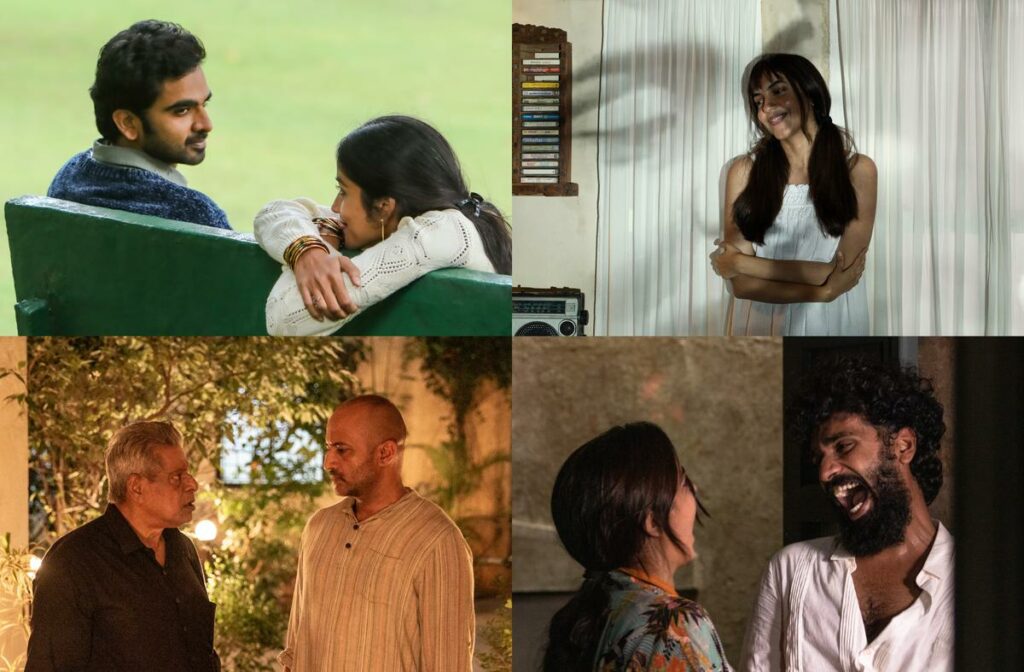
When Revathi (Ramya Nambessan) meets Rohini (Vijaylakshmi) for the first time, there is no name-calling or blaming. They try to understand each other. They are both in love with Ravi (Kishore) and accept the change that the new arrangement brings. The modern love is the love that both the women develop for each other, their acceptance is fresh and this narrative of female friendship must be experienced.
Modern love – A psychological affair
The last episode twists your idea of what is real and what is not. Sam’s (Wamiqa Gabbi) passionate affair with K (PB) is a modern fairy tale, a tale of heartbreak, second chances, and delusion. The live-in couple fights and decide to part ways, we never know the reason. The heroine visits a psychiatrist, is woeful, and the hero has woken up from a coma. He has forgotten everything but still remembers his love for her.
The rest is Thiagarajan Kumararaja’s genius of conveying a love story while concealing everything. It is mysterious, challenging, and intriguing. The journey of more than an hour is worth indulging in. Modern Love Chennai’s ending leaves you with the most pertinent question: Is love even real?
The rest is Thiagarajan Kumararaja’s genius of conveying a love story while concealing everything. It is mysterious, challenging, and intriguing. The journey of more than an hour is worth indulging in. Modern Love Chennai’s ending leaves you with the most pertinent question: Is love even real?
All that rains is modern love
Rain ties all the stories together. A metaphor for love, it binds the anthology and leaves an aroma of love. The love that blooms in the rain brings back nostalgia from all the 90’s romantic cinema. Mallika’s dance in the rain with no music from Jazmine’s first date with Milton to Sam’s hour of final break-up (only to be re-united), rain binds modern love.
It is not the best piece of screenwriting, neither is it the best directorial experience, but it is a series you should not miss. The layered depiction of love in Modern Love Chennai is a cosy escape from all the hullaballoo. It is even better when you watch it while it’s raining (or not).
About the author(s)
Dr. Guni Vats is an Assistant Professor at the Department of English, Manav Rachna International Institute of Research and Studies. A PhD in Gender Studies, she is a renowned researcher, writer, and scholar.
